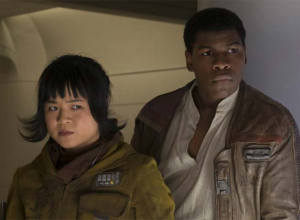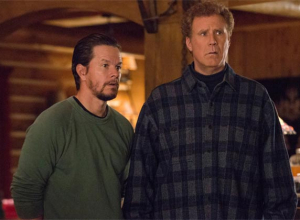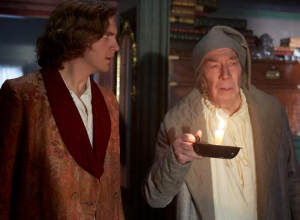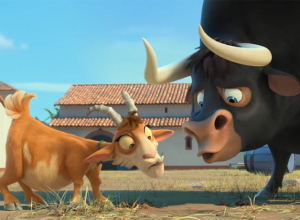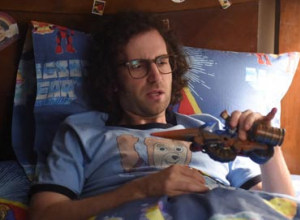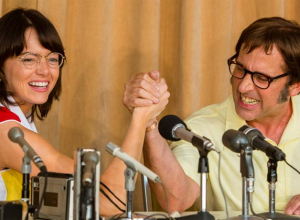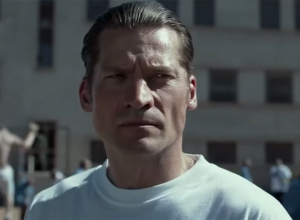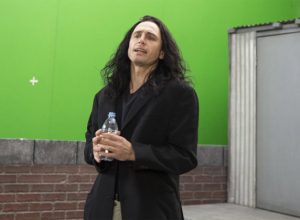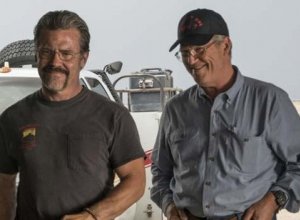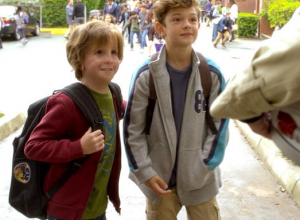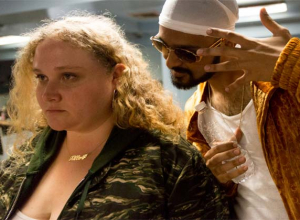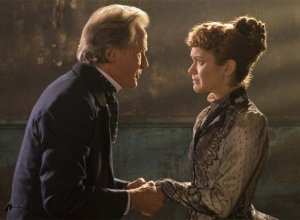Windtalkers Review
By Rob Blackwelder
The Navajo code talkers who are the ostensive focus of the new John Woo World War II movie have so little to do with the story that calling the picture "Windtalkers" feels like a sham.
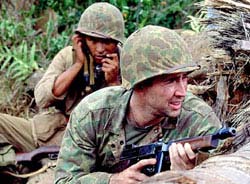
Sure it opens with a breathtaking shot of rock formations in the Arizona's Monument Valley, giving the film an immediate sense of place and spirituality. But it's essentially the same shot Woo used to open "Mission: Impossible 2," minus a rock-climbing Tom Cruise and plus a touch of reverent native flute music on the soundtrack.
Sure one of the main characters is a Navajo named Ben Yahzee (Adam Beach) who has a hard time fitting in with his Marine unit, which is teeming with countrified Southern bigots. And sure, once the Pacific island combat scenes get rolling Ben calls in a few air strikes using the never-broken Navajo language-based code that helped win the war.
But the discrimination storyline could have featured any non-Caucasian ethnicity with just a few dialogue tweaks, and air strikes called in from a position that's already under fire hardly require talking in code. (In real life the Navajo code was used more for intelligence than during fighting.)
So except for the few scenes in which the Navajo soldiers perform ceremonies, learn their code words or use the code in combat, "Windtalkers" is hardly about the code talkers at all. In fact, it's nothing but a warmed-over version of the same World War II movie that Hollywood studios have been making since, well, World War II.
There's a shell-shocked soldier, a "What are you doing after the war?" scene in which newlywed soldiers set up their ironic deaths and, of course, the ethnic-minority-saves-the-bigot's-life scene, followed by the inevitable change of heart that goes with it.
With the code talkers regulated to supporting roles, the movie's main character emerges as the sad-sack sergeant played by Cage, who has been assigned to protect Ben Yahzee in combat -- and more importantly to "protect the code at all costs." In other words, he's supposed to kill his Indian charge rather than let him be taken alive by the Japanese (which never happened in real life -- that's what Hollywood calls creative license.)
Shaken by an earlier battlefield failure that wiped out his entire unit and sent him to the hospital for months, Enders is none too comfortable with these orders and rebuffs Yahzee's attempts at friendship for fear of not being able to do his duty.
The warfare staged for the film is loud and bloody, but it's generic (pathetically grainy, obviously colorized stock footage is used for shots of ships at sea), uninspired and repetitive. Faceless, silhouetted soldiers get blown into the air by explosions over and over and over and over again, and whenever a soldier gets shot and a buddy goes back for him, the buddy dies as well (this happens at least five times).
The imperious score (by "Titanic's" James Horner) trumpets the movie's self-importance. Take away the one exciting scene in which soldiers sneak behind Japanese lines to steal a radio when theirs is destroyed, and "Windtalkers" doesn't even have John Woo's trademarked touch of operatic action-violence -- unless you count that severed head rolling across the frame at a pivotal moment.
The performances of Cage and Beach are strong and emotionally honest enough to buttress the movie's sagging, mechanical storyline. Another Navajo and Marine minder, played by newcomer Roger Willie and Christian Slater, do what they can with the movie's requisite cultural bonding subplot, learning to play a duet on a Navajo flute and Slater's harmonica.
But the fact that the Navajo play such a small part in the story exposes "Windtalkers" for what it is -- a wholly unremarkable, cookie-cutter war film with a few nuggets of conspicuously modern screenwriting thrown in. The dozens (if not hundreds) of similarly standardized WWII movies that preceded this one didn't have a friendly fire incident or characters that swear like 21st century teenagers. Nobody in the 1940s ever said "Can you believe that s**t?"
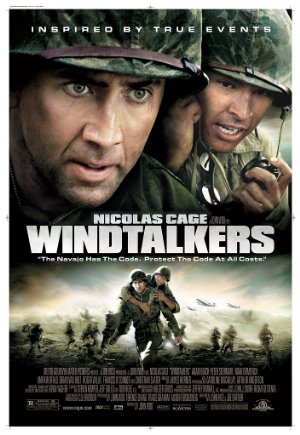
Facts and Figures
Year: 2002
Run time: 134 mins
In Theaters: Friday 14th June 2002
Box Office USA: $40.5M
Box Office Worldwide: $40.9M
Budget: $115M
Distributed by: MGM/UA
Production compaines: Metro-Goldwyn-Mayer (MGM), Lion Rock Productions
Reviews
Contactmusic.com: 2 / 5
Rotten Tomatoes: 32%
Fresh: 54 Rotten: 113
IMDB: 6.0 / 10
Cast & Crew
Director: John Woo
Starring: Nicolas Cage as Sergeant Joe Enders, Adam Beach as Private Ben Yahzee, Peter Stormare as Sergeant Eric Hjelmstad, Noah Emmerich as Corporal Charles Rogers, Mark Ruffalo as Pappas, Jason Isaacs as Major Mellitz, Christian Slater as Sergeant Peter Henderson, Frances O'Connor as Rita Swelton, Keith Campbell as Kittring
Also starring: Roger Willie, Frances O'Connor
